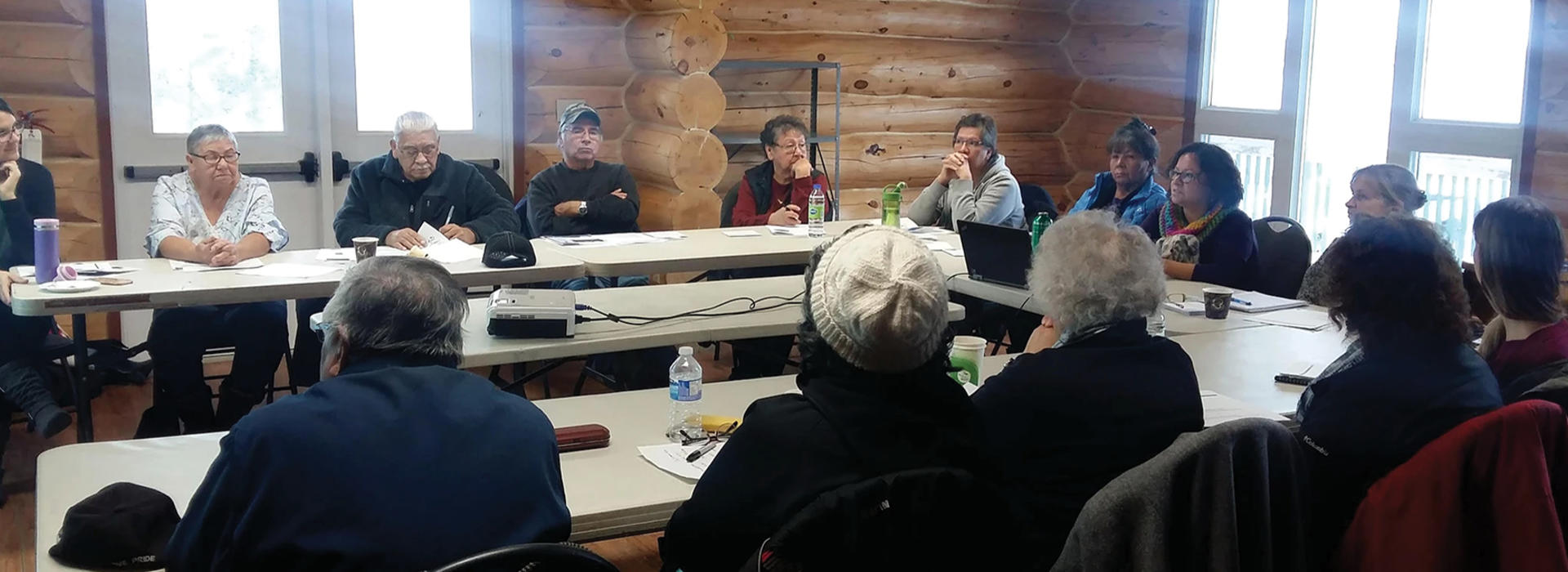
Detecting Dementia: Memory Keepers MDT Launches New Cognitive Assessment
According to the CDC’s Road Map for Indian Country, American Indians and Alaska Natives ages, 65 and older with dementia are expected to grow over five times in the generations ahead. Housed at the Medical School’s Duluth campus, the Memory Keepers Medical Discovery Team (MDT) is dedicated to preserving brain health by improving the understanding of dementia and diabetes in tribal communities.
Kristen Jacklin, PhD, a medical anthropologist and associate director of the Memory Keepers MDT, has been a member of the state-funded initiative since its inception in 2017, but her road to understanding dementia and its impact on Native populations began in Canada more than a decade ago.
“We first started working in the area of dementia research with Indigenous populations in 2010 when there was very little known about it,” Dr. Jacklin said. “It was a request that came to us from a few of the First Nation communities on Manitoulin Island in Canada who were noticing that there were more dementia cases among their elders.”
Through years of community-based research methods on Manitoulin Island and international collaborations, the interest to develop a pathway for a culturally safe cognitive assessment was established. The Memory Keepers team, which also includes Wayne Warry, PhD, a professor in the Department of Family Medicine and Biobehavioral Health, and Melissa Blind, PhD, a senior research associate, initiated focus groups and took the time to understand past experiences tribal members had with the healthcare system, as well as the relationships they had with their caregivers. They discovered that previous cognitive assessment questions did not translate well and weren’t culturally fair, especially for those who were first language speakers. Dr. Jacklin explained that asking the question, “Who is the prime minister of Canada?” wasn’t as important as asking, “Who is the grand chief?”
Taking her research methods from Canada, she joined the Memory Keepers MDT to officially launch the Canadian Indigenous Cognitive Assessment (CICA) in November.
“The adaption was made possible through the inclusion of Indigenous knowledge shared by our partnership with the Anishinaabe on Manitoulin Island, Ontario,” Dr. Jacklin said. “The project took many years of careful planning and research, and because of that, we are confident the training materials will provide a culturally safe assessment for those in need of an evaluation.”
Jacklin founded the Indigenous Cognition & Aging Awareness Research Exchange (I-CAARE) with hopes to move the assessment forward with her partners at the Memory Keepers MDT and develop a robust program focused on improving the lives of Indigenous people with dementia in Minnesota and Wisconsin.
“Whichever pathway people choose to conduct their evaluation, either in the comfort of their home or in the clinical setting, the assessment provides an opportunity to move forward with next steps for both individuals and physicians,” Dr. Jacklin said.
To access the full toolkit, visit www.i-caare.ca/cica.